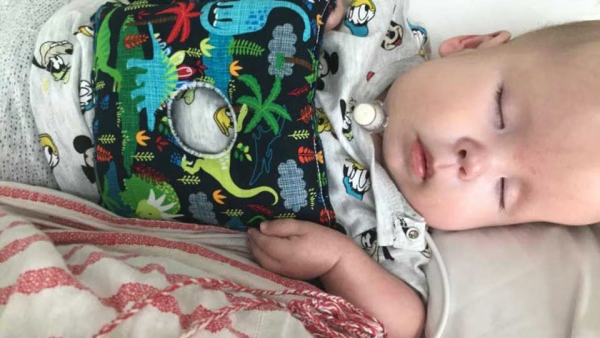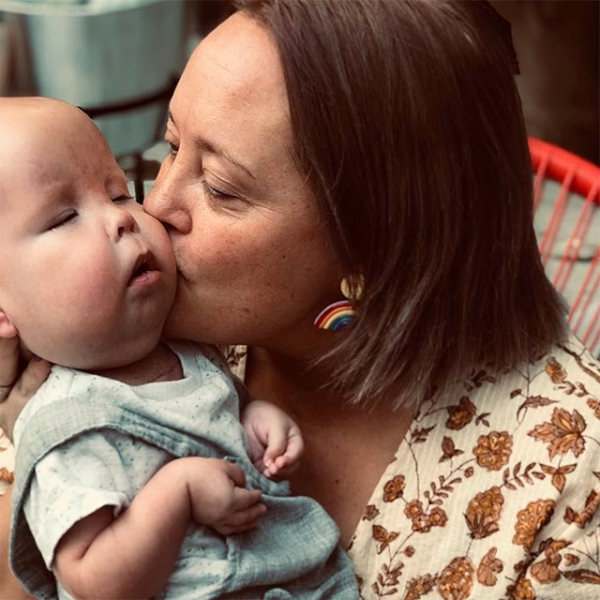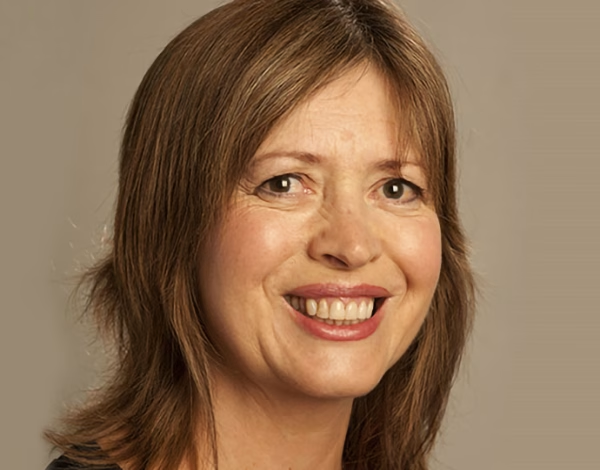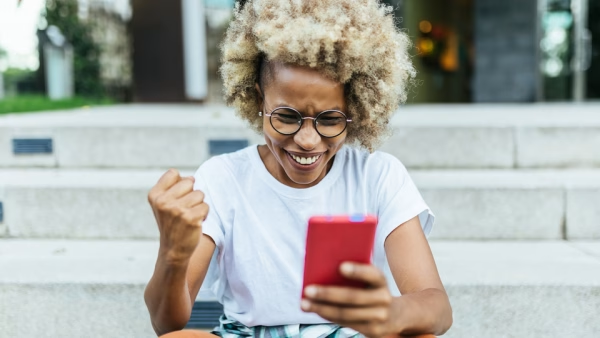FaceMatch: The crim-catching tech changing the lives of children
Facial recognition can do more than unlock your smartphone


Facial recognition has come a long way over the last decade, with the software now used in airports, clubs and shopping centres – in fact, you’re likely holding the technology in the palm of your hand.
But, facial recognition can do far more than just unlock your smartphone.
Back in 2016, Geneticist Dr Tracy Dudding-Byth was watching ABC’s Catalyst in her living room when a segment on facial recognition and its use in counter-terrorism began. The program explained that by using new technology, facial recognition could pinpoint and track individual faces in a crowd. With the software, a task that could take potentially tens of thousands of man-hours, takes just milliseconds.
Having a daughter with a rare health condition, Tracy has experienced the lengthy diagnostic journey associated with rare diseases.
Working as a Clinical Geneticist, Tracy sees children with severe developmental delay or intellectual disability. “All these children are beautifully unique in their appearance, but children with genetic conditions often share similar features”. As these facial features can sometimes provide a clue to diagnosis, she considered whether she could use the technology to help diagnose children with this group of genetic disorders.
“I wondered whether facial recognition technology could help parents find a diagnosis for their child by matching their faces with other diagnosed and undiagnosed children around the world.”
Genetic disorders affect millions of people across the globe, but for a parent trying to find a diagnosis for their child, Tracy explains that the odds aren’t in their favour.
Despite testing for about 1,500 known developmental genes in a single analysis, 60-70% of children remain undiagnosed.
“Unfortunately, despite testing for about 1,500 known developmental genes in a single analysis, 60-70% of children remain undiagnosed; and there are an estimated 2,000 developmental disorder genes still to be characterised.” Comparing the DNA from at least two or a cluster of children with similar features leads to new gene discovery.
Which is where facial recognition can help.
“When current genetic testing is unable to make a diagnosis, clinicians rely on manual face matching techniques, such as trying to remember patients who look similar or comparing images at conferences. This process is subjective and inefficient.”
So, Tracy reached out to the creator of the facial recognition technology featured on Catalyst, Professor Brian Lovell, to discuss using the software for a medical purpose – which is how FaceMatch was born.
FaceMatch is a platform that helps parents and doctors contribute to an international secure image database of both undiagnosed and diagnosed children across the globe. Using artificial intelligence, FaceMatch provides a way to compare facial images and clinically-documented features to find a diagnosis. A user can upload a front and side-profile image of their child’s face to the library and the software will generate a report that details whether the child shares a close facial match with other children within the database.
“The technology has the potential to ease years of heartache and uncertainty for families and parents faced with the challenges of an intellectually disabled child with an unknown diagnosis,” says Tracy.
And, the technology is not just available to doctors and clinicians. In fact, Tracy encourages parents to get involved.
“Although we ask parents of undiagnosed children to nominate a doctor to work with the FaceMatch team, we believe that it is important that parents have the autonomy to initiate enrolment in the study so that they can be involved in the diagnostic journey.”

One of the parents who has experienced first-hand the life-changing capabilities of the FaceMatch technology is Sas Lyon, whose son Jasper is diagnosed with two complex and rare genetic syndromes.
Sas explains that as a parent or caregiver, it’s hard to navigate a health plan without having an example of another child with the same condition to base it on.
“Without another child with the same condition, we couldn’t really project the specific implications of the syndrome on Jasper.
Desperate for a road map from which to help build Jasper’s forward plan I searched online and ended up finding another child called Albie from the United Kingdom who had the exact same mutation but whose results had not been loaded into the international database,” says Sas.
Which is why it’s so important that FaceMatch can be used by health professionals and parents alike.
After Sas reached out to Albie’s family, she was able to get his results, treatments and diagnosis uploaded to the FaceMatch system, meaning Jasper and his medical team could use this comparative data to map out his particular genetic mutation.
“The parent or carer is the ongoing carer of the child, and their most important advocate. Being involved in the process and being an active participant allows them, particularly for those who do not receive a diagnosis, to continue to be active in the search for children who may be loaded into the system after their child which may lead to a diagnosis,” says Sas.
The impact that comes from diagnosing these conditions quickly and accurately can literally save a child’s life
The impact that comes from diagnosing these conditions quickly and accurately can literally save a child’s life – a process that the FaceMatch technology is hoping to streamline for families across the globe.
“Finding out Jasper’s diagnosis saved his life. FaceMatch was built to assist in providing this for those who have previously remained undiagnosed. We are beyond thrilled to be able to share his diagnosis in the hope that people without access to seasoned geneticists may be able to find answers through him,” concludes Sas.
For the FaceMatch technology to continue changing lives of families across the globe, it’s so important that Tracy and her team get as many photos uploaded to the system as possible. For more information on the technology and how you can get involved, head to the FaceMatch website.
FaceMatch is a collaboration between Hunter New England Health Service and Vix Vizion.
10 things you didn't know about the nib app
Managing your health cover is easy with the nib app
12 things you can do digitally with your nib membership
12 digital tips to assist you with your nib membership.

In partnership with
Dr Tracy Dudding-Byth
Dr Tracy Dudding-Byth is a Clinical Geneticist at Hunter Genetics, Hunter New England Health, and a Conjoint Associate Professor at the University of Newcastle, NSW.




